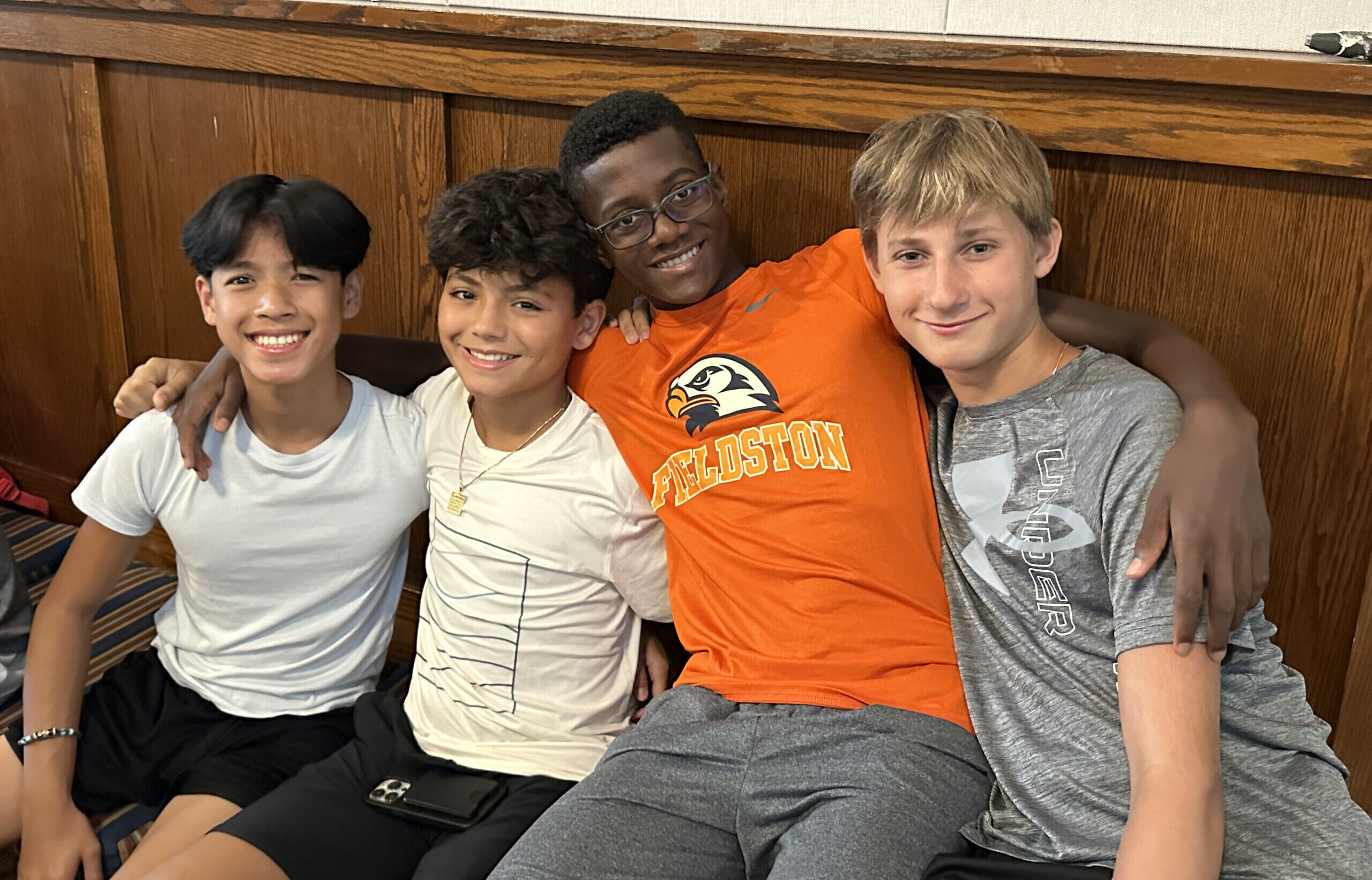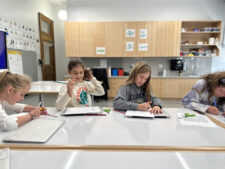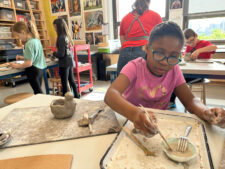We are committed to making our school a place that truly belongs to all of us. This responsibility is shared among the administration, the faculty, and our students and families. The job of making our community more inclusive cannot be achieved by one person alone; we must work together, engaging each other in ongoing dialogue so that all students feel a sense of belonging in our school and have opportunities to be affirmed and validated in the spaces they occupy.
In 2013, we launched a structured program called CARe (Conversations about Race, Ethnicity, Ethics, etc.). The program involves students and families at Fieldston Lower and Ethical Culture and creates one of many opportunities for students to talk about race, ethnicity, and ethics in school. Students spend about 45 minutes each month in their CARe groups and then have an opportunity to meet together with their class or grade to share and talk about their experiences afterwards. We also offer other affinity spaces for students — for example, Students of Color, Jewish students, and students thinking about their gender identity. Our goal is to support the healthy identity development of all of our students.
We want to give all our students the context, reflection time, skill, and strategies to know and advocate for themselves even as they learn to become upstanders and advocate for others. We want every member of our community to have the understanding, empathy, and skills to address and interrupt any and all forms of bias and injustice.
Bias feeds off ignorance. Therefore, we provide opportunities for our students to learn about — and often experience firsthand — different cultures. Each year, 5th Graders at Fieldston Lower study a variety of cultures, focusing on how each one is multi-layered and unique. In recent years, in connection with their culture study, students visited the Ganesh Temple in Flushing, Queens. During the trip, they learned about Hindu cosmology, the temple’s history, and the religious practices that take place there. They also had an opportunity to eat in the temple’s canteen and sample traditional dosas. There’s no better way to get to know and appreciate a culture than to spend time with the people, visit the spaces they hold sacred, and taste the flavors that represent their home.
Another way in which our students learn about a culture different from their own is through our partnership with the Lerata Primary School in Kenya, Africa. The mission of our partnership is to create and nurture a reciprocal relationship between Ethical Culture students and Lerata students wherein both groups expand their worldview. Students at each school contribute stories about themselves to an ongoing project entitled “A Life Like Mine.” In the words of Ethical Culture Principal Rob Cousins, “My big aim was for our kids to understand that, while Lerata students may appear to live in a very different world, there are things that unite both sets of students. They can look beyond a picture. They can see there’s a totally different way of living a happy life that doesn’t look like the way that we live.”
We start with essential questions in building our curriculum at Fieldston Middle, connecting the learning back to our mission of nurturing ethical citizens. We want students across grades to have fluency with ethical questions and dilemmas and to be able to approach them from myriad perspectives. A recent essential question was: “What were the roles of men, women, and children in ancient societies?” In 8th Grade history, our teachers and students used this essential question to guide their learning, exploring primary sources about the legal or social status of women in Egypt, Greece, Rome, and medieval Europe through lenses of equity and fairness.
At Fieldston Upper, we offer several courses that tackle difficult questions surrounding race, socioeconomic status, gender, and other identifiers. A history course offered to 11th and 12th Graders asks the question: “When did European immigrants transform into American white people?” Students in this course examine how the term “whiteness” is often used as a vehicle through which Caucasian people dominate and oppress people of color. The class investigates “whiteness,” not as a biologically determined identity, but as a cultural, historical, and political construction. In a media and ethics course, students examine the extent to which technology has created or perpetuated digital inequity in certain communities. Students research the digital divide in specific populations, then create websites offering a holistic look at this growing American problem.



